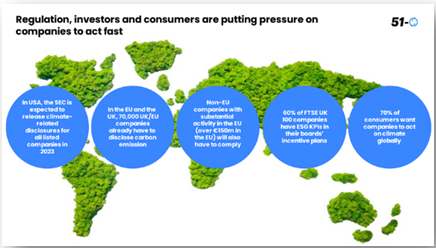INP-WealthPk
Faiza Tehseen
Pakistan needs to follow the international standards and protocols to generate a handsome revenue from the carbon markets. It will help gain the investor confidence and proper pricing of carbon credits, opined Muhammad Saleem, media spokesperson for the Ministry of Climate Change and Environmental Coordination (MoCC&EC), while talking exclusively with WealthPK.

He said, “Carbon guidelines are necessary drivers to streamline Pakistan’s contribution to the international carbon markets. Properly followed guidelines will lead toward a smart climate action. For successful manoeuvre of these guidelines, a sophisticated monitoring and validation system is direly needed. To ensure transparency, calibration, and reliability of carbon credits issued by home projects, Pakistan is committed to adopting the international carbon trading guidelines.”
He said Article 6 of the Paris Agreement emphasises unified global efforts to reduce greenhouse gas (GHG) emissions. It offers an unprecedented opportunity for the development of global carbon markets, necessary to achieve low-carbon growth and adaptation objectives. The outcomes of these objectives are not mere technical solutions but indispensable strategic tools for climate resilience and sustainable development.
Discussing with WealthPK, the ministry’s spokesperson said, “International carbon guidelines are a set of principles, offering a transparent and accountable system to ensure the reliability of carbon credits and standards to reduce GHGs. Pakistan is positioning itself to capitalize on carbon trading to unlock new opportunities for a sustainable climate action. In this concern, collaboration of both national and international stakeholders is also playing a vital role.”
He said Pakistan was initiating transforming changes to untap its potential in carbon markets through innovative projects including sustainable urban development, afforestation, and renewable energy. Besides international unification, regional collaboration is also necessary for shared progress in climate finance and carbon trading. By aligning its institutional framework with these guidelines, Pakistan is keen to attract both national and international investors in the carbon markets.
“A coherent policy framework and technical infrastructure are crucial to ensure proper implementation of carbon guidelines. For environmental sustainability and economic growth, transition needs strategic planning to trade carbon credits. For Pakistan, adhering to the international guidelines will bring great transition to the low-carbon economy,” added Muhammad Saleem.
Talking to WealthPK about the importance of following the international carbon guidelines and its importance for the country, environmentalist from Gilgit-Baltistan (GB), Dr. Muhammad Akbar said perfectly associated environment policies were necessary to accelerate efforts for creating a robust carbon trading infrastructure.
He said, “Today’s strategies will shape Pakistan’s role in tomorrow’s global carbon markets. Despite the latent benefits, Pakistan is facing hurdles to fully capitalize on the carbon markets. Lack of a robust regulatory framework, and absence of a clear roadmap for dedicated engagement with the global carbon markets is making the situation worse.”
He said both compliance and voluntary carbon markets were gaining power. To tackle climate impacts and meet targets, the stakeholders seek cost-effective solutions. Developing countries like Pakistan are under stress to reduce carbon emissions under the Paris Agreement. To achieve this goal, strict action according to the carbon guidelines is the best strategy to adopt, said Muhammad Akbar.
Credit: INP-WealthPk













